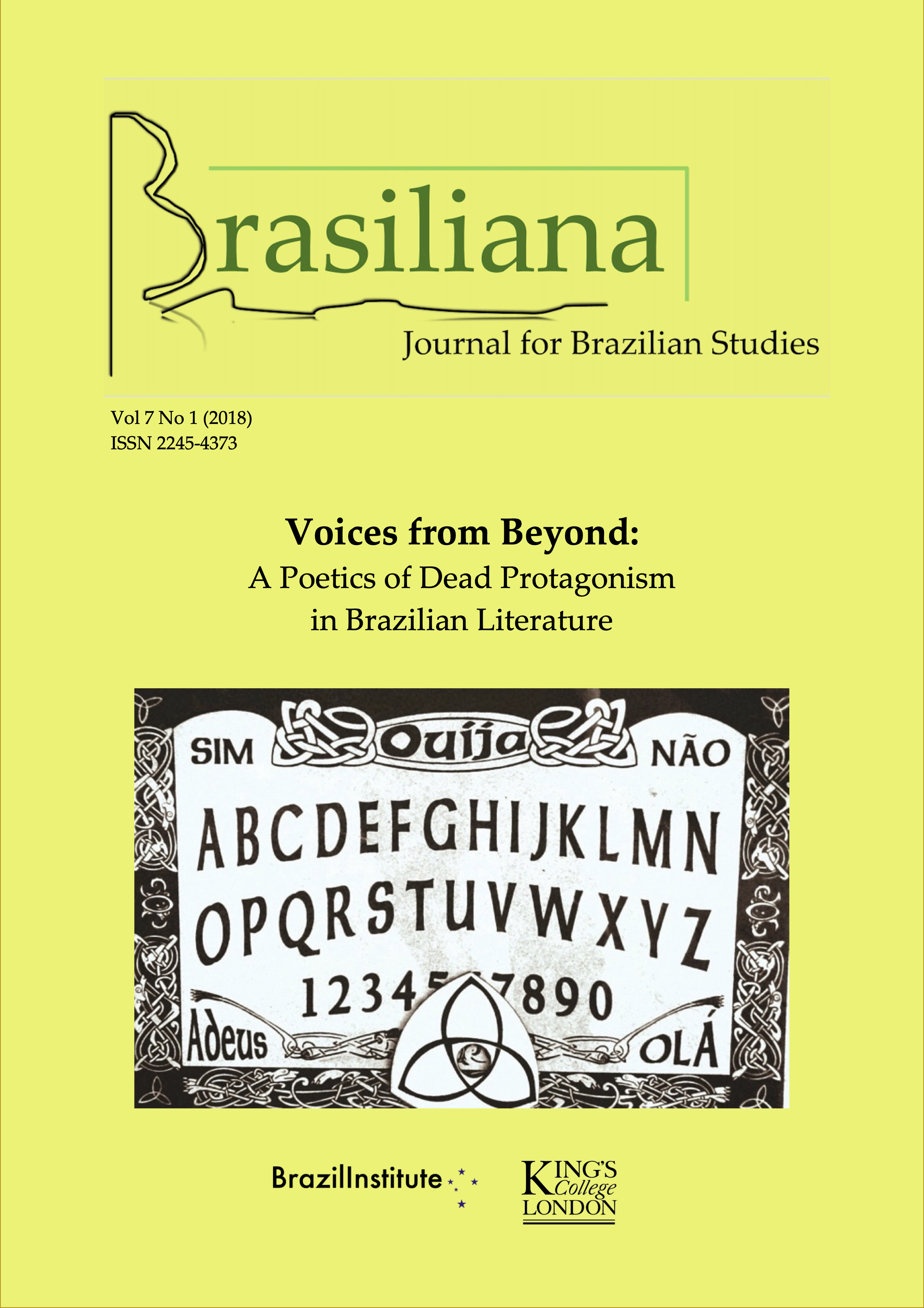A meditação sobre o Tietê: a voz lírica entre a morte e a vida
Main Article Content
Abstract
In the long poem "Meditação sobre o Tietê" written by the Brazilian modernist writer Mário de Andrade, posthumously published in Lira paulistana, in 1945, the lyrical self, like Narciso, is projected in the Tietê waters, from the Bandeiras bridge, in São Paulo, occupying, at the same time, the space of daily life - the bridge - and the water space, place of death, since, despite being on the river, he is mixed with the waters, observing, through of its mirror image, the course of intellectual and poet. Thus, in the verses, the voice that sings originates both in the death and in life, situated, therefore, in a third margin, since after having perceived the lack of place for poetry, in the political context in which it is inserted, deciding to the abyss of the river, in a sacrificial surrender in which he seeks, even remotely, a form of rebirth.
Article Details
![]()
Articles published in Brasiliana are licensed under a Creative Commons Attribution-NonCommercial-NoDerivs 3.0 Unported License.
When publishing open access, the author signs an author publishing agreement in which they retain copyright and give Brasiliana the right to publish the article. Our Open Access publications are distributed under the terms of the Creative Commons Attribution 4.0 International License, which permits unrestricted use, distribution, and reproduction in any medium, provided the original work is properly cited.

